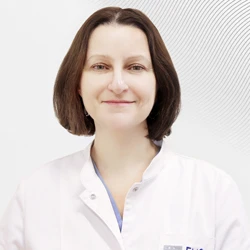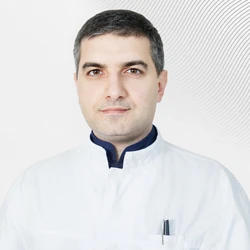In the EMC, choosing a drug for cancer treatment based on a genetic analysis of the tumor has become the norm. All types of molecular genetic tests are performed in the laboratory that can predict the effectiveness of therapy, help the doctor choose the drug necessary for a given patient and, by prescribing "targeted" (targeted) treatment, cure the patient, or, if the disease is already at a late stage, increase his life expectancy.
Cancer is often referred to as a "genome disease", thereby emphasizing that this disease is based on various genetic "breakdowns" of cells. Unfortunately, anyone can get cancer, and the genetic defects in the tumor will vary from person to person. This means that for successful cancer treatment, it is necessary to conduct a genetic analysis of cancer cells, as it is commonly said today, to study the molecular "portrait" of the tumor, since the personification of cancer treatment can significantly increase the effectiveness of the fight against this disease.
At the European Medical Center, choosing a drug for cancer treatment based on a genetic analysis of the tumor has become the norm. All types of molecular genetic tests are performed in the laboratory that can predict the effectiveness of therapy, help the doctor choose the drug necessary for a given patient and, by prescribing "targeted" (targeted) treatment, cure the patient, or, if the disease is already at a late stage, increase his life expectancy.
Targeted treatment differs favorably from chemotherapy in that it practically does not damage healthy cells and tissues of the body, affecting only a given "pathological" gene. This type of treatment is also very convenient because medications can be taken at home, as these medications are often available in tablet form.
For example, for the treatment of breast cancer, it is necessary to know whether sex hormone receptors are present in the tumor (analysis for the expression of estrogen and progesterone receptors). If the receptors are detected, the patient needs hormone therapy. In addition, a special HER2 receptor is detected in the tumor, which makes breast cancer sensitive to the drug herceptin, and such patients must necessarily be treated with this medication.
For the treatment of lung cancer, it is necessary to examine the tumor in our laboratory for EGFR, ALK receptors. These are small molecules that deliver intracellular signals that cause tumor cells to divide and grow rapidly. To block these receptors, we can use a whole arsenal of new drugs – afatinib, cetuximab, erlotinib, crizotinib, pemetrexed.
For the successful treatment of other types of tumors, such as intestinal cancer, head and neck tumors, stomach cancer, and melanoma, pathomorphologists at the EMC Histological Laboratory will also compile a molecular "portrait" of the tumor, which will help clinicians choose the only correct type of treatment for this patient.
Thus, the EMC implements an individual approach to treatment, which increases its effectiveness. The molecular portrait of a tumor in each patient is its own unique set of genes and their mutations.
Was this information helpful?
Questions and answers
Dermoid cyst and pregnancy
An ultrasound revealed a mass in my left ovary during the first pregnancy. I was told that it is a dermoid cyst. Five years have passed since then. I gave birth to a second child. An ultrasound was performed annually. There were differences in size, but not significant. Since I’m going to have the 3rd child, another
ultrasound was done today. The doctor said that the cyst had increased. I am concerned about it. Don't know where to start. What tests are needed? Thank you.
...more Surgical treatment is strictly indicated in your case given the long history of the mass in the ovary and its rapid growth in recent times. In our clinic, we perform such an intervention laparoscopically through 3 small punctures. Patients go home next morning after the surgery and may return to work after 3 days.
This surgery must be as delicate to preserve healthy ovarian tissue (considering your reproductive plans) as radical at the same time to remove the mass together with the capsule. At the preoperative stage an expert level ultrasound with Doppler is required, as well as blood tests for Ca-125 and НЕ-4 tumor markers. The decision concerning the necessity of FEGDS and colonoscopy is taken based on the results of these tests.
...more
Total knee replacement
My mom suffers from gonarthrosis for the past three years. Despite treatment by injections the pain is still present. MRI revealed a meniscal tear in the posterior horn, the presence of small bony osteophytes on the patella, a small amount of fluid in the joint cavity (signs of exudative synovitis were detected)
joint space is asymmetrically narrowed in the medial segment. The pain is ongoing but the knee remains flexible. Tell me, please, whether the surgery is contraindicated for meniscal tear in case of arthrosis? Is it possible to do an arthroscopic surgery on the meniscus in our case or it should be «major» surgery? And what would you advice concerning knee replacement for the patient in the age of 57? What is the life time of the artificial joint?
...more It is necessary to make an X-ray of the knee in direct projection in standing position. If it turns out that there is no medial cartilage in the medial area, then the knee replacement is the only solution. The age of 57 is normal for the prosthetics. Modern artificial knee joint (when properly placed of course) will
serve for a lifetime. You can make an appointment via phone +7 (495) 933-66-44.
...more 
Kardanov Andrey
07 September 2016
Pain
I am 19 years old, professionally engaged in weightlifting. I did an arthroscopy of both knee joint a year ago, now feel pain in them and it prevents me from training at full capacity. I visited a traumatologist, and «osteoarthritis of 1 degree» was diagnosed. Could you advise me some medicines or anything else to
relief the pain? Thank you very much for the answer!
...more
First of all you should undergo an MRI and find out what was done at arthroscopy; if it’s really an arthrosis of 1 degree, hyaluronic acid injections are possible and physiotherapy is not required. Anyway, you are always welcome to consultation for thorough examination.
Question to Dr. Yakobashvili
Tell me, please, at which age child's hearing should be checked-up if we were informed at the hospital before discharge that one ear does not hear. At the moment the child’s age is 1.5 months. Thank you.
These tests done in the hospital are often false negative. Hearing can be tested now, it is necessary to make an appointment to the audiologist.
Cought
A child of 11 years old, suffers from cough for more than six months. The cough is dry, sometimes attack-like, mainly begins during the day, and often occurs before sleep. There is no cough at night. CBC is normal, glucose is 4.16, total IgE 111.80, Toxocara, Ascaride are negative, Cytomegalovirus, Mycoplasma are
negative, PPD test is negative as well. A chest x-ray is normal. We have already consulted with a therapist, otolaryngologist, pulmonologist, neurologist, gastroenterologist... the cough is still present. What should we do?
...more First of all, there are no results of whooping cough testing among the results provided above. The disease cannot be ruled out, even if your child was vaccinated. The blood test for antibodies against the whooping cough germ is required (blood test for class M and G antibodies against Bordetella pertussis). Second,
even a slight increase in class E antibodies is a reason to visit an allergist and to perform an evaluation of respiratory function with bronchodilator. This method will detect a latent bronchial spasm in your child. Even if the results of the test will be normal, allergologist mast rule out the allergic nature of the cough even if it's not obstructive syndrome. Third, this cough can be due to gastroesophageal reflux. It is difficult to draw any conclusions having no data of gastroenterologist’s consultation. 24-hour acidity monitoring of the stomach and esophagus is carried out to confirm or exclude the presence of reflux. Fourth, you didn’t mention whether x-ray of nasopharynx and paranasal sinuses was done. Perhaps, after all, the pathology is associated with ENT organs.
...more 




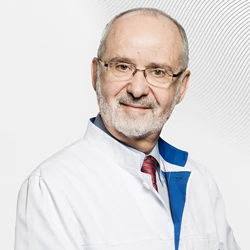

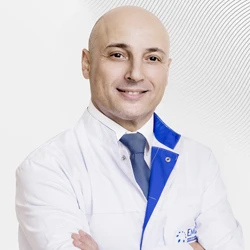

.webp)
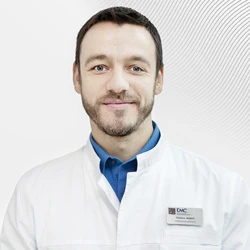

.webp)




.webp)

.webp)

